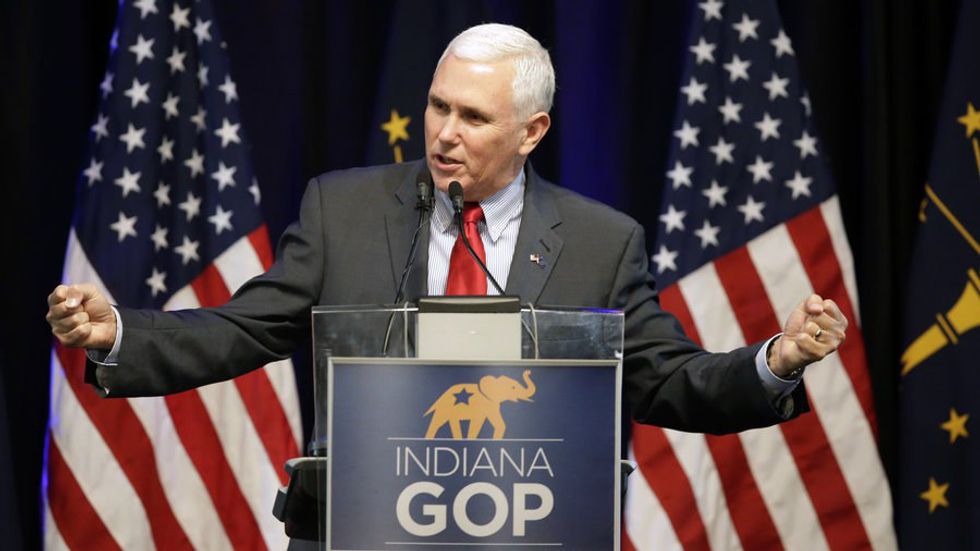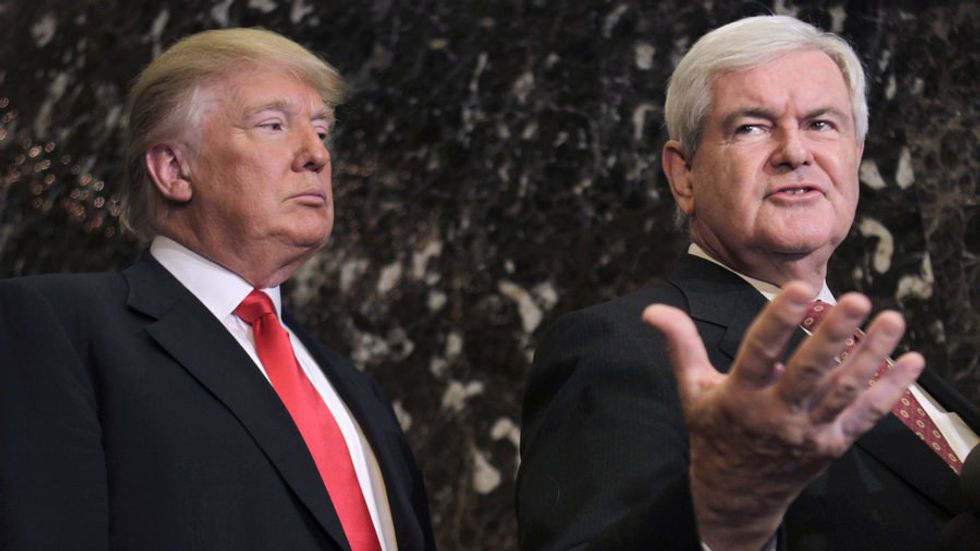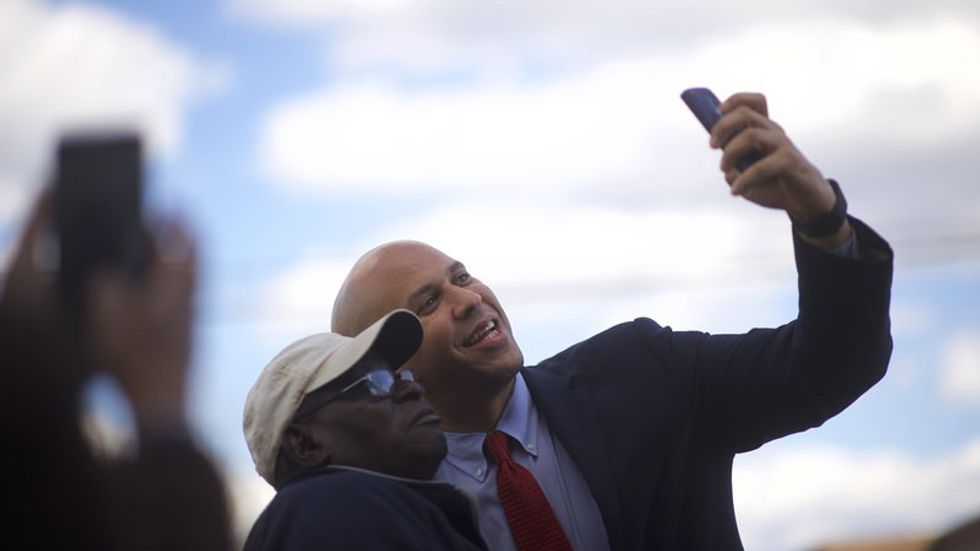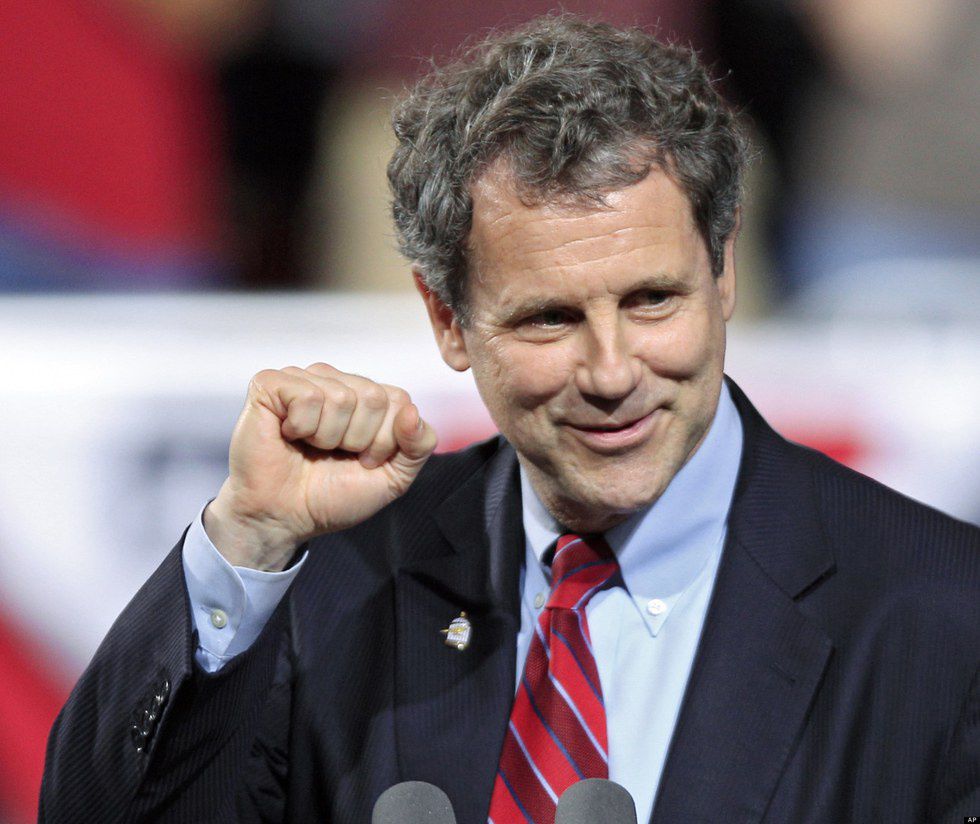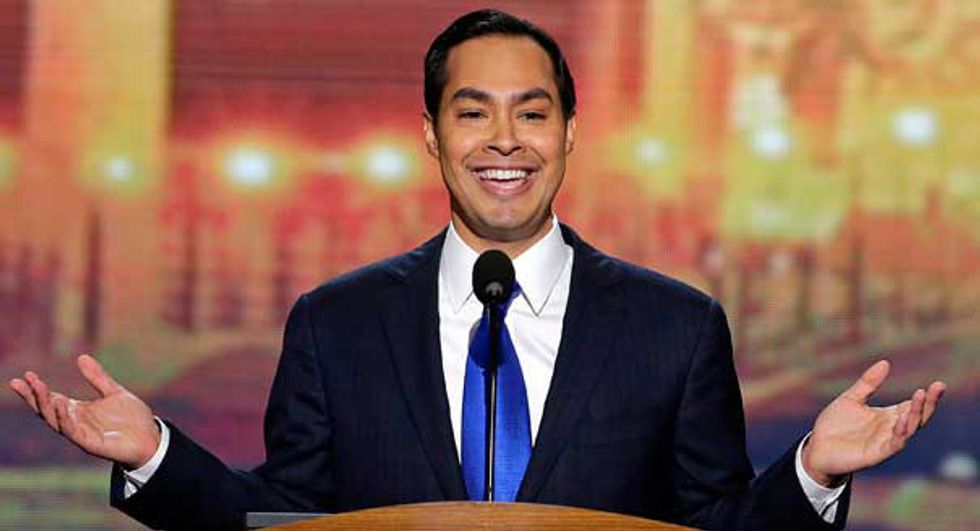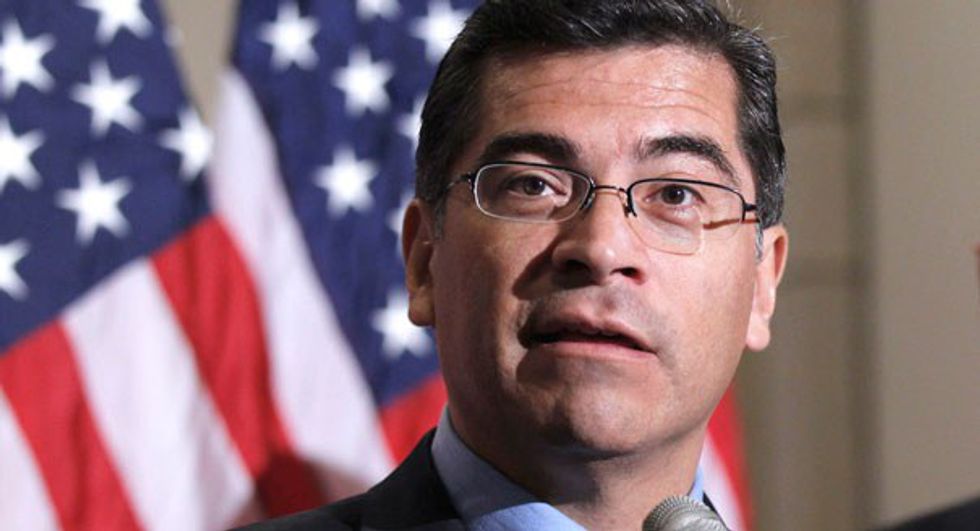Well, the 2016 presidential race is heating up again. Slowly, at least. Kind of like a fire that has had too many wet logs piled upon it.
Democratic presumptive nominee Hillary Clinton and her Republican counterpart Donald Trump, the two least inspiring presidential candidates since Millard Fillmore and Franklin Pierce, are looking for who might be their respective vice presidential running mates. They are being met by silence. SNL fairly accurately depicted Trump's dilemma.
In a typical presidential election, candidates from either party vet a laundry list of possible running mates. Many of those on the list even play to the national mood and appear on TV to bask in the spotlight until a possible VP is pulled from out of left field. For example, during the 2012 presidential campaign, Republican Florida Senator Marco Rubio, just a freshman in the Senate, was touted as a likely candidate for Mitt Romney. Rubio eventually denied the rumors, but still appeared on news stations to flame the fires of speculation and even used this new fame to allow him to deliver the Republican response to President Obama’s State of the Union address that year.
Eventually Romney chose Congressman Paul Ryan of Wisconsin, now the Speaker of the House. The hype of it all actually gained Romney a much needed boost as the public and the media speculated upon who the Republican vice presidential nominee would be, headed into their national convention.
But this is a different election. Four years ago, a dozen Republicans would have leapt to be Mitt Romney’s running mate, regardless of his mediocre performance as a candidate (and this is coming from a Republican like myself). Now, in 2016, no Republican or Democrat wants to risk his or her political future by coming within 10 yards of Donald Trump or Hillary Clinton.
Regardless of the fact that practically no one on either side of the aisle is gunning to be either nominee’s running mate, Trump and Clinton are both vetting the few possible candidates that would likely say yes. But for both presumptive nominees it’s a heavily weighted decision. But, as things are, Trump and Clinton are both in a stalemate. One likely way to break this stalemate may be to interject fresher faces into the campaign by selecting vice presidential running mates.
For Donald Trump, the goal of choosing his running mate is to unite the Republican Party behind him or secure independent voters with whom he holds a small lead over Clinton.
For Hillary Clinton, her vice presidential choice will have to entice more men and blue-collar voters to switch to her camp.
Donald Trump has made a list of VP choices that seems like it was scratched out on a bar napkin. This list includes a vast array of personalities and individuals of different backgrounds. Appearing on his list were names like freshman Iowa Senator Joni Ernst, Governor Mike Pence of Indiana, and former Speaker of the House Newt Gingrich. These three names were reportedly on Trump’s finalist list along with retired Lieutenant General Michael Flynn, the former Director of the Defense Intelligence Agency who predicted the rise of ISIS and was ousted by President Obama’s staff for not following the administration’s public narrative concerning the Middle East.
All of Trump’s picks have the potential to both hurt and heal his campaign. Senator Joni Ernst, for example, is a veteran, conservative and pro-life, and most of all she’s a woman. She is the epitome of everything the Republicans need to win the election against Hillary Clinton. She would be able to court military voters as well as independent women unsure about whether they to vote for Hillary Clinton, considering her character. She is relatively young and can therefore attract younger Republican and independent voters planning on sitting this election out. The downside to Senator Ernst is her lack of experience. Ernst was elected in 2014, but has served on a number of Senate committees and has kept herself involved in the legislature. Nonetheless, the party would likely choose not to field Ernst and Trump, two relatively inexperienced candidates, against Clinton in a battle for political know-how.
Second on Trump’s list is Indiana Governor Mike Pence. While Trump struggles to unify the party, Trump’s biggest weakness is rallying the conservative wing of the party to his camp. Governor Pence could serve as a conduit to unite the conservative elements of the party behind Trump and act as a sounding board to approach issues in a mature manner. Pence has the executive experience and the connections with Capitol Hill to provide Trump a unifying voice within his campaign. But Pence’s staunch pro-life stance would alienate independent women voters and his socially conservative positions could estrange millennial voters from placing their faith in a Trump/Pence ticket. Pence is also seeking a second term as Governor of Indiana, and his success or failure in the general election as a vice presidential nominee would end his governorship.
Thirdly, former Speaker of the House Newt Gingrich has been a strong vocal supporter of Donald Trump. Like Trump, Gingrich came into the 2012 Republican primaries like an outsider and did well in early polls, seizing South Carolina from the establishment candidates. Gingrich lost the campaign however to Mitt Romney. But Gingrich can offer Trump the political savvy, insider knowledge of Washington, and connections to the party’s donors who’d give money to see Newt Gingrich ride into the White House with any candidate.
Gingrich today is still seen as a Republican hero: in 1994 he managed the national strategy that allowed the Republicans to secure the House and Senate for the first time in decades, propelling him to the position of Speaker of the House. Gingrich did this all the while working with a Democratic president and passing a record number of laws working across the aisle during the brief bipartisan era of the mid-1990s. Gingrich resigned in 1999 amid ethics charges. Those charges have appeared to be forgotten, but could present issues to a Trump/Gingrich campaign. Gingrich, a Georgia Southerner, could balance the ticket geographically for Trump, a New Yorker, and attract even more blue collar voters in swing states like Florida, Virginia, and North Carolina. It could even help propel Trump over Clinton in Pennsylvania where Trump has the potential to win.
Further downsides to including the former Speaker in the campaign is the image to two old men running for the White House. Gingrich could turn off millennial voters, but his sway with independents and his national reputation could nix this as an issue.
Gingrich nevertheless remains the best possible choice for Donald Trump.
But Trump, full of surprises, could pull a choice out of left field like former Lieutenant General Michael Flynn.
Flynn presents shock value to Trump’s campaign. It would give him knowledge of how the military functions, but wouldn’t provide him with someone with knowledge inside the Washington political machine. Flynn downside is also his affiliation with the Democratic Party and his pro-choice positions that could turn away conservative voters. Flynn conversely could win over voters who are concerned with national security, as he predicted the rise of ISIS in the Middle East and protested against President Obama’s lax policies on Libya and Syria. The Obama Administration dejected him from his position over these disagreements. It would be wise for Trump though to pick a viable Republican candidate who could attract independents but have the values to pacify conservatives.
Hillary Clinton faces her own dilemmas. Unlike Trump she is the establishment. She’s more of the same. Everyone knows what you’re getting with Hillary and independents and numerous Democrats are supporting Trump because of her high unaffordability ratings and low trustworthiness according to polls. Clinton would need to select a candidate who could win over the undecideds and interject energy into her lethargic humorless campaign.
The Clinton campaign has been said to be vetting New Jersey Senator Corey Booker, a young liberal African-American known for his fiery oratory skills. Booker, unlike Clinton, is known for his high energy and could attract millennials trapped in limbo after Sanders dropped out of the race. Even though Sanders chose to endorse Clinton, a move which angered many young voters who saw it as a betrayal, the youth aren’t flocking to Hillary as expected. Booker could help make this happen and appeal to the broader African-American base that helped propel Clinton to victory in the primaries. Booker’s shortcoming is that he’s often been noted as being an attention-seeker and provocateur known for being a wild card and could get Clinton in trouble with his antics if not pacified before a general election.
Another possible Clinton pick is Ohio Senator Sherrod Brown. He too has the experience and the political savvy, but in a campaign with low energy he doesn’t appear to be the right fit for the face the Democrats are struggling to put on to show themselves as a diverse organization. Brown could appeal to Trump-leaning blue collar workers and attract them to Clinton’s side, but both he and Hillary and centrists running in an increasingly left-leaning party. He would help win workers, but would lose liberal support.
In terms of courting Latino voters, Clinton has been vetting Secretary of Housing and Urban Development Julian Castro. Although his youth and Hispanic heritage could help woo over Latinos, Castro is a relatively unknown character. Aside from serving as mayor of San Antonio for five years, Castro has never been elected to a national-level elected office and lacks in the campaign experience and insider knowledge of policy. His position as HUD Secretary however would help balance Clinton’s foreign and domestic policy.
Lastly, Clinton’s preferred choice would be California Congressman Xavier Becerra, current chairman of the House Democratic Caucus. As the highest-ranking Latino in the House, Becerra understands policy and how to work with Congress. The son of first-generation Mexican immigrants Becerra could attract immigrants to the Clinton campaign. He is a strong supporter of NAFTA and has a strong liberal stance on free trade. He could greatly help Clinton with domestic issues, particularly toward addressing Hispanic policy. His downsides however are his weak positions on immigration and lack of foreign policy knowledge that would turn away independents. This and his relatively unknown status outside of the Hispanic community and the Democratic Party could distract from Clinton’s email scandals and questions about her morality.
In closing, Clinton and Trump have a lot of ground work. Neither has the ability to carry a campaign on their own with their personal unaffordability ratings, though both are in a statistical stalemate with one another. Picking a running mate would boost either one’s campaign. For Trump however he can defeat Clinton with just his lead in the male and blue collar votes, but he’d have to unify the party to do it. Clinton would have to interject energy into her campaign, but her caution to choose a radical candidate means taking the campaign too safely. Either way we’ll know when the national conventions roll around. This election unlike any other has taught us one thing:
Expect the unexpected.






